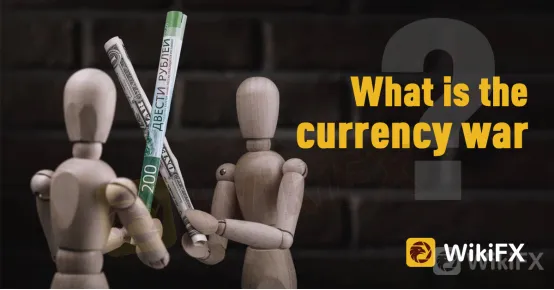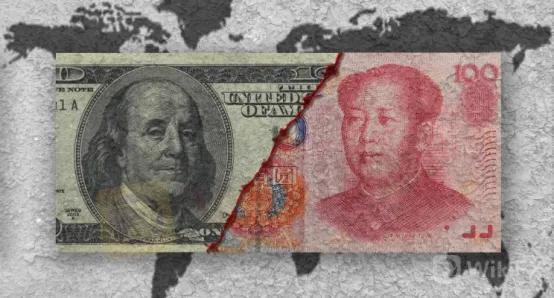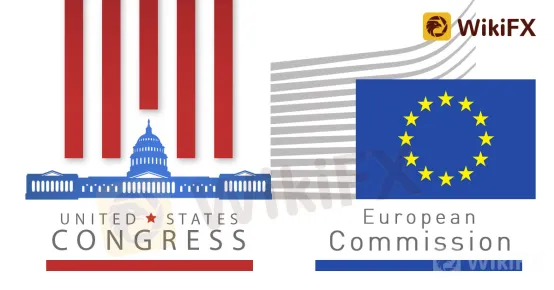简体中文
繁體中文
English
Pусский
日本語
ภาษาไทย
Tiếng Việt
Bahasa Indonesia
Español
हिन्दी
Filippiiniläinen
Français
Deutsch
Português
Türkçe
한국어
العربية
Come to know about “currency war”! Make sure to keep your chips at the critical moment.
Abstract:The root of a currency war is the imbalance of political, economic, and military power among countries. The competitive devaluation of currencies around the world suppresses the global economy and disrupts the financial system. Countries maximize their interests by controlling the value and circulation of their currencies. Once this competition becomes uncontrollable, it will turn into an invisible economic war.

After the 2008 financial crisis, the whole world is afraid of whether there will be another financial crisis similar to that of 2008. When the crisis really comes, people are still unprepared and unable to deal with it. What is the real danger? The largest economy starts to divide due to trading, the whole country was hit by COVID-19. An uncoordinated policy response between countries will prolong economic weakness and trigger a new round of currency war.

What is the difference between currency war and a trade war?
Trade war, that means two or more countries have a conflict of trade taxes with each other. Generally, a country implements trade war in order to raise tariffs against other countries and expand its own exports. If the countries involved refused to compromise, they will face further increase of export tariffs.
Currency war means that countries maximize their benefits through their own currencies, usually by devaluing their currencies to stimulate exports and gain benefits from the exchange rate. When countries begin to devalue their currencies competitively, global currency wars and exchange rate wars will break out.
What's your leverage?
With the quantity of COVID-19 confirmed cases keep raising, the market investors have an unprecedented sense of urgency.
According to an analysis by MSIC, so far, global stock markets have fallen nearly 20 percent as a result of the spread of the COVID-19 epidemic and the collapse in oil prices, and volatility is expected to soar to more than 40 percent. It remains to be seen whether the crisis will follow a pattern similar to that of the past.
Underthe epidemic, major central banks around the world have begun to act.
The Fed cut interest rates by 50 bp and 100bp in a row, lowered the target range of the federal funds rate to 0- 0.25 percent, announced a new round of quantitative easing (QE) of $700 billion and cut the discount rate for emergency loans by 125bp. According to incomplete statistics, in addition to the Federal Reserve, more than a dozen central banks, including the Bank of Australia, the Bank of Canada and the Bank of Korea, have also entered the ranks of interest rate cuts.
Although the European Central Bank and the Bank of Japan, which are already in negative interest rates, did not cut interest rates further, they both stepped up quantitative easing. The ECB added an additional 120 billion euros in asset purchases until the end of the year, while the Bank of Japan announced an Y6,000bn increase of its annual ETF purchase target to Y12 trillion and a raise of the Japanese real estate investment trust (J-REITs) purchase target to Y180 billion.
It is worth noting that at present, a single monetary policy is no longer enough to boost market confidence. At present, the Fed is only one step away from negative interest rates, and there is a lot of speculation that the Fed will join the camp of negative interest rates in the future. However, whether negative interest rates can effectively boost the economy is still controversial, and the policy has also been criticized by many parties. The traditional monetary policy system, represented by the Federal Reserve, has been in trouble. Although extraordinary policy stimulus has become the norm, it cannot fundamentally break the situation and will deepen rather than alleviate the hidden risks.
Judging from the fiscal measures of major economies, the US Congress has passed an $8.3 billion bill to deal with the COVID-19 epidemic, and the Trump administration is planning to launch a nearly $1,000bn economic stimulus policy. Canada has also announced a new fiscal measure of C$1.1 billion. South Korea's parliament approved a supplementary budget of 11.7 trillion won to deal with the impact of the epidemic on the economy and support fragile businesses and domestic consumption.

In Europe, the hardest-hit area of the epidemic, financial measures are also being gradually promoted and implemented. European Commission President von der Lane said the EU will launch an investment plan of 37 billion euros and give member states flexibility in terms of budget deficits and state aid, and will use 1 billion euros of EU funds to provide loan guarantees of up to 8 billion euros to 100,000 companies in tourism, retail, transport and other troubled industries hit by the epidemic.
Italian Prime Minister Conte said that 25 billion euros have been prepared to deal with the economic impact of the COVID-19 epidemic. British Chancellor of the Exchequer Sunak said he would provide 330 billion pounds in government loans and guarantees to support the economy. French Finance Minister Lemerre announced that he would invest 45 billion euros to fight the epidemic.


WikiFX App is a third-party inquiry platform for company profiles.WikiFX has collected 17001 forex brokers and 30 regulators and recovered over 300,000,000.00 USD of the victims.
It, possessed by Wiki Co., LIMITED that was established in Hong Kong Special Administrative Region of China, mainly provides basic information inquiry, regulatory license inquiry, credit evaluation for the listed brokers, platform identification and other services. At the same time, Wiki has set up affiliated branches or offices in Hong Kong, Australia, Indonesia, Vietnam, Thailand and Cyprus and has promoted WikiFX to global users in more than 14 different languages, offering them an opportunity to fully appreciate and enjoy the convenience Chinese Internet technology brings. WikiFXs social media account as below:
Facebook:
UK Area:https://www.facebook.com/Wikifx.UK/
USA Area:https://www.facebook.com/WikiFX.US
Nigeria Area:https://www.facebook.com/WikiFX.ng
LinkedIn:
Nigeria Area:https://www.linkedin.com/company/31506916
Twitter:https://twitter.com/WikiFX_Eng
More details about how to download WikiFX App:

Please download WikiFX APP from links below or scan QR code :
Google Play:https://play.google.com/store/apps/details?id=com.foreigncurrency.internationalfxeye
App Store: https://apps.apple.com/us/app/fxeye/id1402501387?l=zh&ls=1


Wiki Forum Forum Function:
In order to help more investors, WikiFX has launched the “WikiFX Forum” forum, which aims to provide urgently needed and professional services to Nigerian forex investors.
The exposure function of “WikiFX Forum” includes the following features:
1: Allow investors who have been defrauded by illegal broker to complain directly in the forum (as shown in the screenshots)
As long as there is sufficient evidence, a review panel and an executive team will contact the broker to discuss the complaint or expose it directly through the media. Here are the exposure channels:
2: Block low score brokers from entering the forum
3: Monitor suspicious communication in real time, and directly spot and deal with suspicious fraud;
4: Negotiate with highly reliable brokers selected by WikiFX in the secure environment of WikiFX Forum.
WikiFX APP exposure channel: https://activities.wikifx.com/gather/indexng.html
Information page to understand forex scam and exposure channel: https://activities.wikifx.com/gather/indexng.html
Website exposure channel: https://exposure.wikifx.com/ng_en/revelation.html
Worried about missing out latest trends in the volatile market? WikiFX ‘News Flash’ is here to help!

With 24-hour real-time update of forex market data by minute, you can seize the opportunity of every bullish market! Bookmark the link below and follow the market trends immediately!
Nigeria Area:https://live.wikifx.com/ng_en/7x24.html
USA Area:https://live.wikifx.com/us_en/7x24.html
Disclaimer:
The views in this article only represent the author's personal views, and do not constitute investment advice on this platform. This platform does not guarantee the accuracy, completeness and timeliness of the information in the article, and will not be liable for any loss caused by the use of or reliance on the information in the article.
WikiFX Broker
Latest News
Japan to Take Action to Stabilize the Yen
Ringgit Remains Flat Amid Holidays, US Debt Concerns Loom
Taurex: Is it Safe to Invest?
Malaysia’s Securities Commission Enforces Ban on Bybit & Its CEO
Will Inflation Slow Down in the New Year 2025?
The WikiFX 2024 Annual User Report is here! Come and claim your exclusive identity!
SCAM ON SCAM: New Tactic Used by Scammers
Crypto Fraud: MBBS Student Linked to Rs.8 Lakh Scam
Currency Calculator


